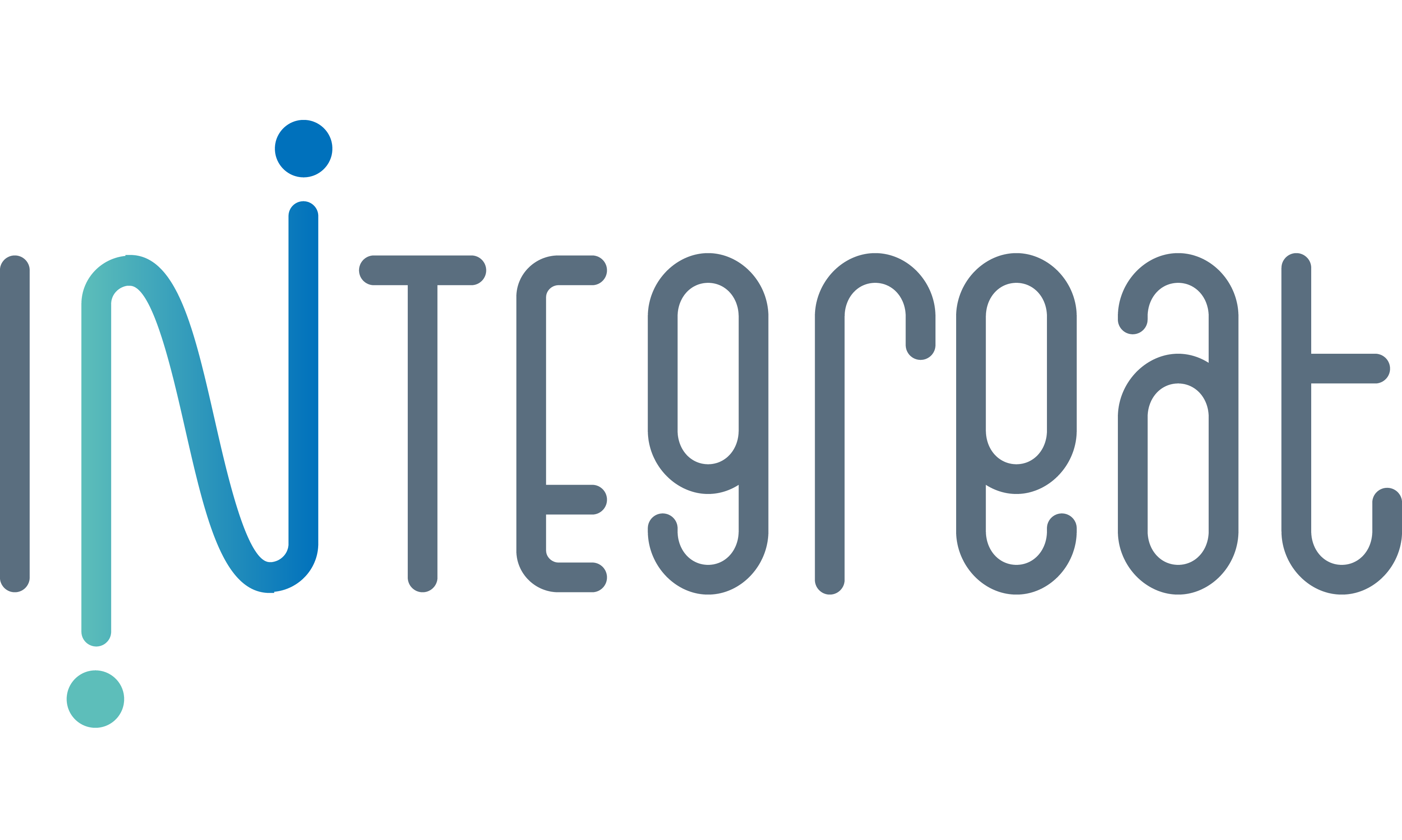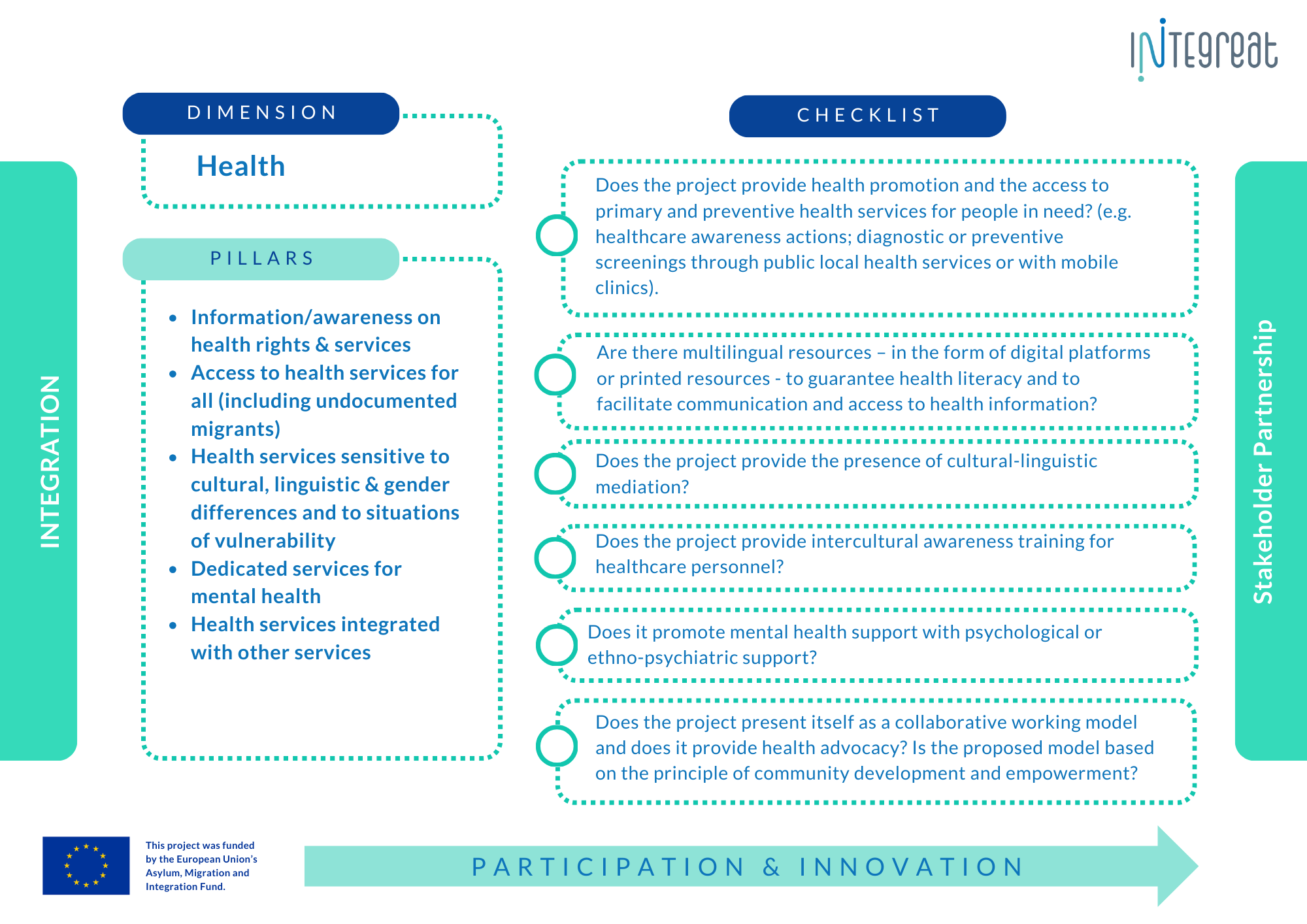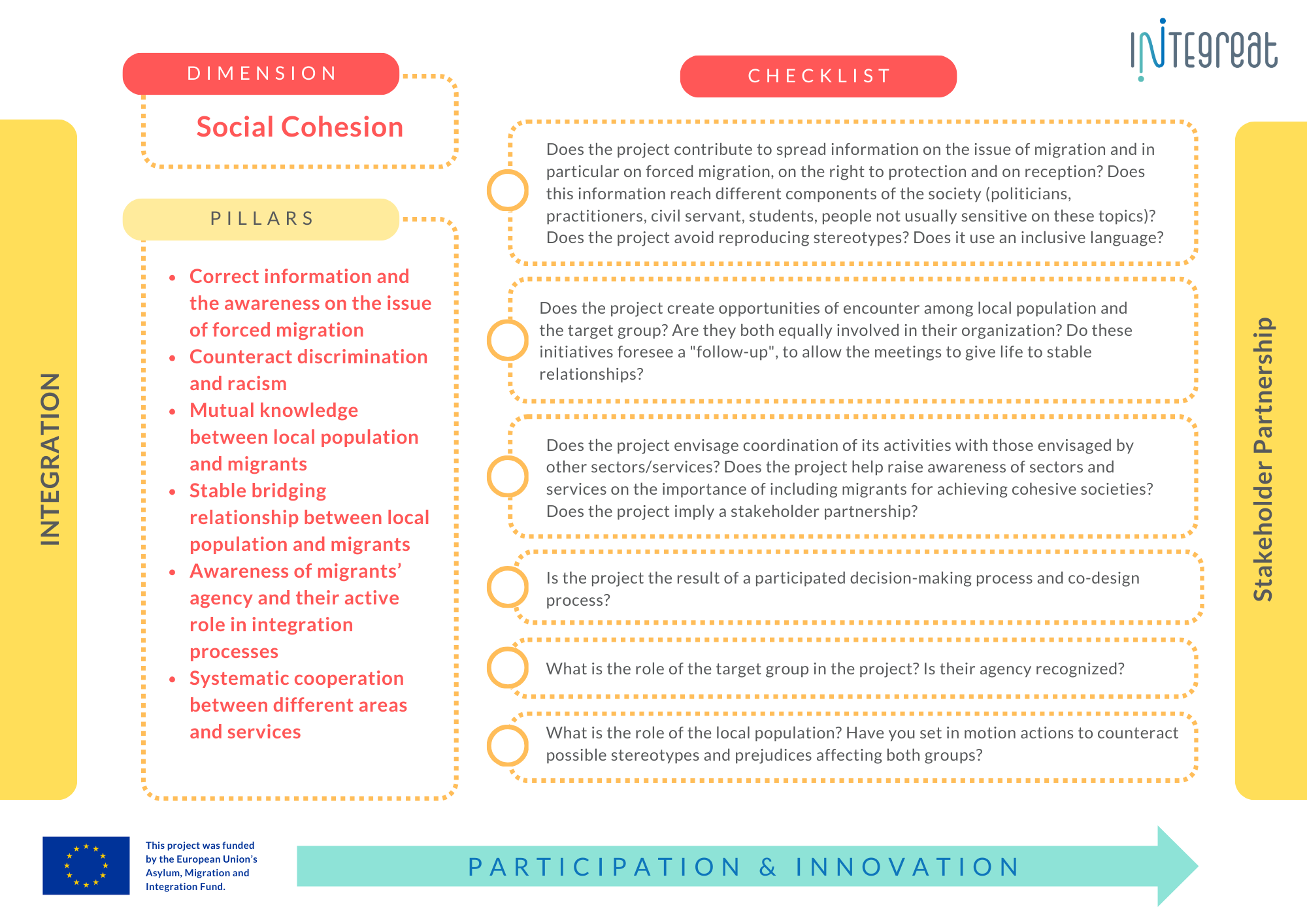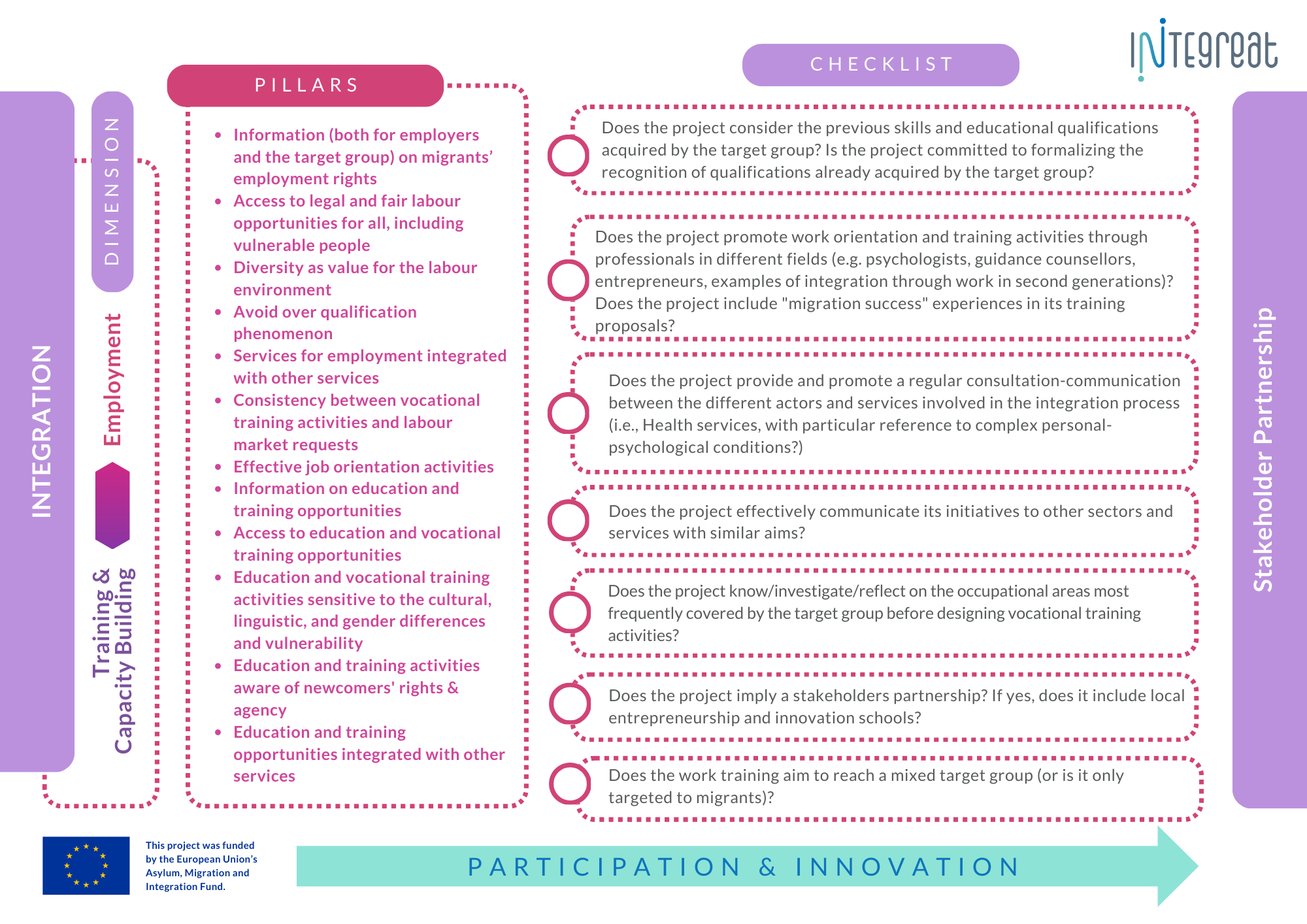Results
Reports
Jan – August 2022
ISF
Sep 2022 – Oct 2022
Pilot activities
Dec 2022 – April 2024
Toolkit
March – July 2024
Country Reports
In the first phase of this project, each partner conducted research on how migrant people are integrated at the local level in their respective cities and countries. This included analyzing integration policies and programs led by municipalities, regional authorities, and national governments. The teams interviewed migrant people, social service workers, and local officials to identify gaps and needs in current programs and to explore opportunities for new initiatives and improvements.
Click on each country to read the full Report on the State of Integration.
Integration Strategy Framework (ISF) and Guidelines
The University of Bologna compiled the country reports into a comparative study to highlight common gaps and priorities in all countries. This analysis identified four key areas for improving integration strategies: employability, education and training, social cohesion, and access to healthcare. From this, the University developed an Integration Strategy Framework—a methodology designed to guide NGOs, public authorities, and stakeholders in creating effective and inclusive programs for migrant integration.
Explore the checklists summarizing the main guidelines for building activities in Employability & Education/Training, Social Cohesion, and Healthcare Access.
ISF Checklist - English
Download the ISF Checklist in English.
ISF Checklist - Italiano
Scarica la Checklist ISF in italiano.
ISF Checklist - Español
Descarga la Checklist ISF en español.
ISF Checklist - Ελληνικά
Κατεβάστε την λίστα ελέγχου ISF στα Ελληνικά.
Pilot Activities Results
In the project’s second phase, each partner organized pilot activities adapted to their local contexts, using the guidelines and Integration Strategy Framework.
Total number of activities organized
Total number of migrant participants
Total number of local community participants
Stakeholders and partners participated in the pilot activities
%
of migrant participants felt more connected to the local community after the activity
Toolkit
In the third phase of this project, partners collected results from the pilot activities and developed a Toolkit of best practices and key recommendations. This toolkit is designed to guide and inspire NGOs, public authorities, and other stakeholders in implementing effective integration activities and programs.








